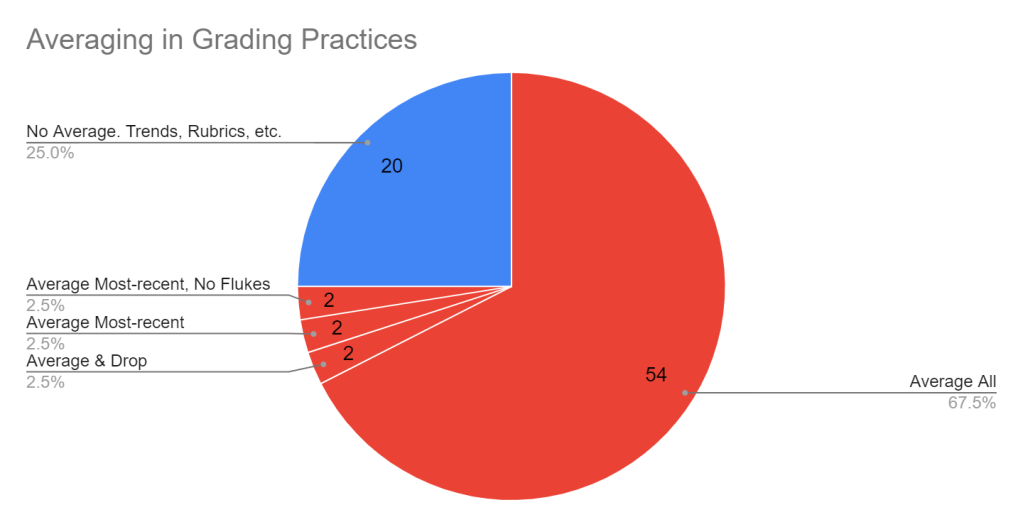Other Posts In This Series:
- Inequitable Grading Practices: Optional Retakes
- Inequitable Grading Practices: Vocab Quizzes
- Inequitable Grading Practices: Homework & Zeros
- Inequitable Grading Practices: Late Work Penalties
For my third poll in a large Facebook group of 12,600 language teachers in this mini-series on inequity and grading, I asked about averaging. A FRACTION of teachers responded this time, with a total of just 80. Compared to the previous poll participants of 585 for late work penalties, and then 625 for homework, I wonder if this is because averaging is something teachers let the gradebook handle without giving it much thought. Most teachers don’t question homework, but they still play a more active role in creating and assigning it, right? Even setting late policies is something teachers…do. Averaging, though? Looks like we might be in a “set it and forget it” situation. The thing is, the gradebook only does what we tell it to (or its default setting), so if we’re not thinking about that, well…
Poll results had the majority (60) doing some kind of averaging. Let’s unpack all that.
Continue reading
